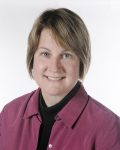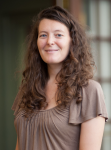23 May 2019–SSA is pleased to announce the recipients of several of the Society’s awards for 2019. The Harry Fielding Reid Medal, the Charles F. Richter Early Career Award and the Frank Press Public Service Award are among the highest honors conferred by the Society.

The Reid Medal recipient is Karen Fischer of Brown University, who was recognized by her colleagues for her pioneering research on Earth’s upper mantle structure and dynamics, the structure and evolution of continental lithosphere, and the dynamics of subduction systems. Fischer and her students conducted research on the boundary between the lithosphere (the more rigid outermost layer of the Earth) and the asthenosphere (a hotter and weaker part of the upper mantle). Their analysis of seismic waves helped to determine limits on the thickness and magnitude of this transition, and how it can be explained by gradients in mantle rock properties such as temperature, chemical composition and partial melt. Fischer also helped characterize zones, called mid-lithosphere discontinuities, within the thick lithosphere beneath the oldest continental crust, suggesting that they likely represent layers rich in “frozen-in” melt and mantle altered by fluids.
Fischer is widely recognized for her contributions to characterizing seismic anisotropy (where the velocity of seismic waves depends on the direction they propagate and the direction they vibrate) which have helped to identify and analyze patterns of mantle flow beneath continents and in subduction zones, where one tectonic plate moves underneath another. Her work in subduction zones has established evidence for three-dimensional asthenospheric flow, demonstrating that mantle flow dynamics are more nuanced than simple entrainment by the subducting plate. She has also been a leader on four major deployments of portable seismometers in North and Central America, providing an invaluable look at the crust and upper mantle in these regions, helping researchers understand the evolution of large-scale continental structure and how the dynamics of subduction interact with melt generation and transport to arc volcanoes, among other topics.

The Richter Award recipient is Marine Denolle of Harvard University. Denolle is a leading researcher in developing and refining algorithms to turn ambient seismic noise collected by seismograms into “virtual earthquake” data, including finding ways to correct for the depth of the virtual earthquake’s “source” in these synthetic seismograms. The seismograms can then be used to study how seismic waves are amplified in sedimentary basins, which underlie a number of major cities worldwide from Los Angeles to Tokyo.
In a paper published in the journal Science in 2014, Denolle described how she deployed instruments along the San Andreas Fault in the San Gorgonio Pass in California, to test whether sedimentary basins near San Bernardino might funnel seismic energy from the San Andreas Fault into the Los Angeles basin. She concluded that the Los Angeles metro area could be threatened by this type of ground motion.

The Press Award recipient is Brian Tucker, founder and former president of the nonprofit organization GeoHazards International, for his efforts to make the world’s most vulnerable communities safer from earthquakes and other natural hazards. Tucker and his colleagues bring together seismologists, geologists, engineers, sociologists and disaster managers to help communities around the globe improve earthquake-resistant construction practices and apply other methods to prepare for natural hazards. Their approach is to identify a risk that the community considers unacceptable; demonstrate affordable, socially acceptable methods that reduce that risk; and finally provide the community with the capacity to implement those methods. The goal is to act before disasters strike.
GeoHazards International, with local and international partners, has developed earthquake scenarios and seismic safety action plans, retrofitted schools, improved the seismic safety of hospitals, mapped landslide hazards, designed and promoted vertical tsunami evacuation parks, and initiated the local manufacture of “School Earthquake Desks”. They work in Central Asia, Nepal, India, Bhutan, Myanmar, Indonesia, Ecuador, China and Haiti.
Nominations for these SSA awards are solicited from SSA members to be sent to the SSA Secretary by the due date of 15 February of each year. To learn more about the nominating process, please visit the SSA Awards page.
